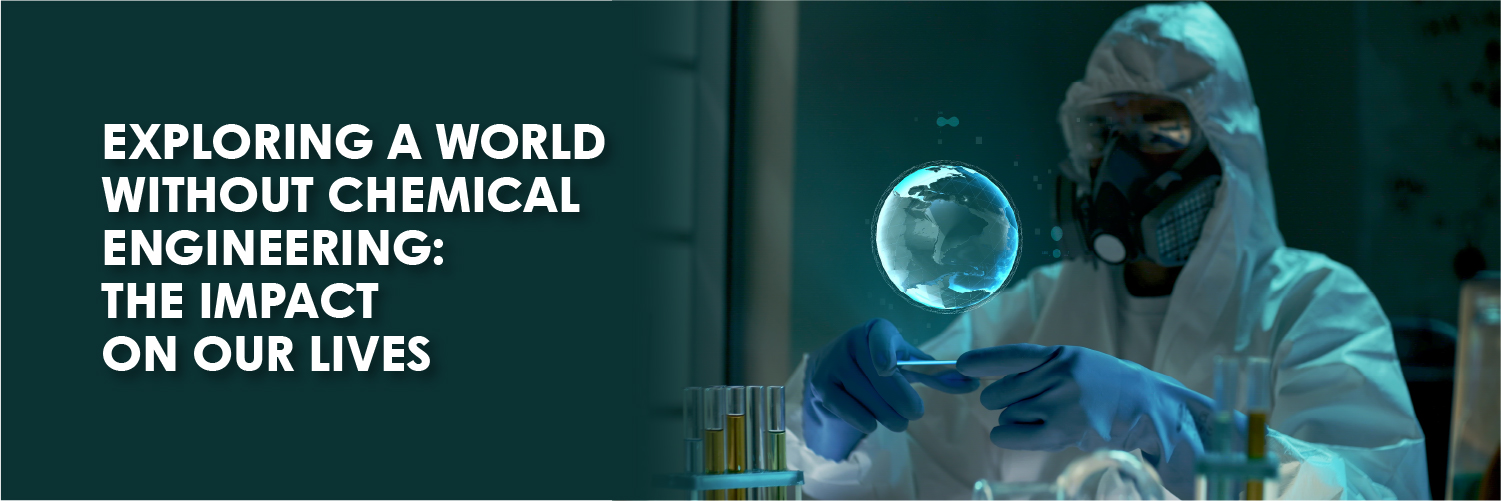Exploring a World Without Chemical Engineering: The Impact on Our Lives

Chemical engineering, often referred to as the "invisible" profession, plays a vital role in shaping our modern world. From the production of essential goods to the development of innovative technologies, chemical engineering touches almost every aspect of our daily lives.
However, have you ever wondered what the world would be like without this indispensable field? In this blog post, we will embark on an imaginative journey into a world without chemical engineering, uncovering the profound impact it has on society.
1. The Absence of Modern Medicine:
One of the most significant consequences of a world without chemical engineering would be the absence of modern medicine as we know it. Chemical engineers are instrumental in the development and production of pharmaceutical drugs, working tirelessly to ensure their safety, efficacy, and large-scale manufacturing. Without their expertise, advancements in life-saving medications, vaccines, and treatments would grind to a halt, leaving society without the medical breakthroughs that have extended and improved countless lives.
2. Limited Energy Resources:
Another consequence of a world without chemical engineering would be a significant setback in our energy sector. Chemical engineers play a crucial role in the extraction, processing, and refining of fossil fuels, as well as the development of renewable energy sources. Without their expertise, the efficient extraction of oil, gas, and coal would become challenging, leading to shortages and skyrocketing energy prices. The development of renewable energy technologies, such as solar panels and wind turbines, would also suffer, hindering our progress towards a sustainable future.
3. Dearth of Essential Materials:
Chemical engineering is responsible for the production and processing of a wide range of materials that we rely on daily. Plastics, textiles, metals, and countless other materials are all manufactured through intricate chemical processes. In a world without chemical engineering, the production of these materials would become highly inefficient, resulting in scarcity, higher costs, and a significant impact on industries such as construction, transportation, and electronics.
4. Environmental Consequences:
Chemical engineering plays a pivotal role in mitigating environmental issues and promoting sustainability. Without this field, the world would face more significant challenges in managing waste, controlling pollution, and developing cleaner technologies. The absence of chemical engineers' expertise in designing efficient manufacturing processes and implementing environmental regulations could lead to increased pollution levels, ecological damage, and a setback in the global efforts to combat climate change.
5. Stagnation of Innovation:
Chemical engineering is at the forefront of technological advancements and innovation. From nanotechnology and biotechnology to materials science and process optimization, chemical engineers are constantly pushing boundaries and finding novel solutions to complex problems. Without their expertise, research and development in various fields would suffer, leading to a stagnation of technological progress and reduced opportunities for societal advancement.
As we can see, a world without chemical engineering would vastly differ from the one we know today. The absence of this essential field would result in a lack of modern medicine, limited energy resources, scarcity of essential materials, environmental consequences, and stagnation of innovation. It serves as a stark reminder of the significant contributions chemical engineering makes to our lives, highlighting its integral role in shaping our present and future. By recognizing and appreciating the impact of chemical engineering, we can better understand the importance of this field in creating a sustainable and prosperous world for generations to come.
OUR RECENT BLOG



